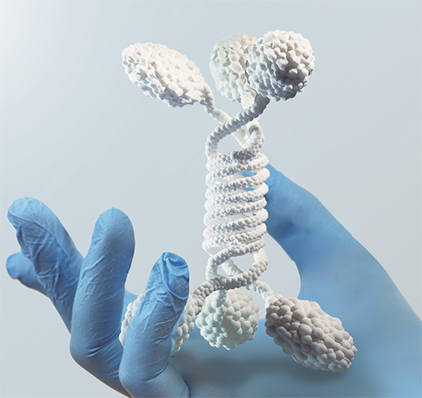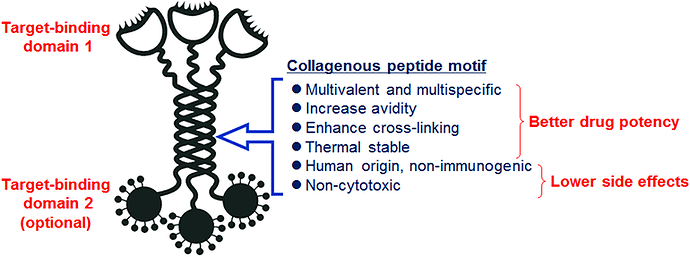
The Industrial Technology Research Institute (ITRI), based in Taiwan, has developed the Collabody drug delivery platform, a molecular therapy to enhance and supplement anti-cancer protein drugs. Currently, many anticancer drugs demonstrate poor specificity for cancer cells, meaning that they negatively affect many non-cancerous cells in the body, leading to dose-limitation and off-target effects. The Collabody system enhances the crosslinking activity of anticancer protein drugs with target molecules on the surface of cancer cells, helping to increase protein drug specificity and reduce the interaction of the drug with non-cancerous cells.
The Collabody system consists of a collagen-peptide scaffold that supports multiple target-binding sites, engineered using antibody fragment fusion technology. Tailored for the delivery of anti-cancer protein drugs, this system can bind to multiple target sites on cancer cells. Not only does it bind to cancer cells, but it also targets molecules involved in the immune system. This can result in recruitment and activation of T-cells, which contribute to killing cancer cells at the tumor site.
The system is currently in animal testing and has shown promise, particularly in animal models of lung cancer. The vice president and general director of Biomedical Technology and Device Research Laboratories of ITRI, Yio-Wha Shau said in a statement:
“If clinical trials on a larger scale are approved, the drug delivery platform is expected to have applications in colon cancer, and head and neck cancers, among others. It is hoped that Collabody will be more effective in treating cancers than current approaches, enabling protein drugs to gradually become more commonly produced by the pharmaceutical community.”
The Collabody concept is illustrated in the following video:

